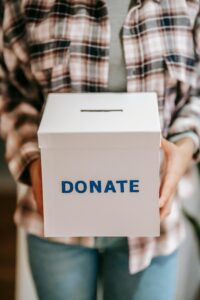Tagged: “hurtful event”
College Students, Forgiveness, and Well-Being

Photo by Cristian Loayza, Pexels.com
In a study of 463 Spanish university students done in 2025, the researchers reported positive correlations among forgiveness, hope, and self-esteem. They reported negative correlations among forgiveness and anger, anxiety, and depression. The authors suggest that preparing the students for a healthy entry into the workplace as adults could be enhanced if universities had forgiveness programs for the students.
The reference to the article is this:
Bonete S, Molinero C, Sendra S and González De Abreu AM (2025) A path to better mental health among emerging adults: forgiveness as a solution to interpersonal conflicts. Frontiers in Psychology, 16:1477283. doi: 10.3389/fpsyg.2025.1477283
Recent Essays in Psychology Today

Dr. Robert Enright
Within the past two months, Dr. Enright had the following two essays published In the on-line Psychology Today website:
Are You Ready to Become Forgivingly Fit?, November 15, 2025
The False Idea That Forgiveness Is for Me, Not the Offender, October 8, 2025
The essays can be accessed by clicking on the two titles.
As Elderly People Live with Their Family

Photo by Aa Dil, Pexels.com
Researchers, who did a study in India published in 2025, asked 12 elderly participants about their experiences of living with their families. The conclusion was that practicing forgiveness within the family context was helpful for these elderly participants in avoiding interpersonal conflicts and enhancing relationships within the family context.
The reference to the article is this:
Tiwari, G. K., Singh, A., Choudhary, A., Shukla, A., Macorya, A. K., Pandey, A., & Singh, A. K. (2025). Forgiveness in Later Life: Attributes and Consequences for Older Adults in Indian Families. Marriage & Family Review, 61(7), 710–736. https://doi.org/10.1080/01494929.2025.2484381
Heroic Forgiveness in Recent Church Shooting

Photo by Liza Summer, Pexels.com
On September 28, 2025, Thomas Jacob Sanford drove his pickup truck through the front doors of the meetinghouse of the Church of Jesus Christ of Latter-day Saints during a worship service in Grand Blanc Township, Michigan. He opened fire with an assault rifle and then set the structure ablaze. Four people were killed and eight were wounded. He was killed in the parking lot by police. In the aftermath, at least six online fundraisers were started for the assailant’s widow and children. David Butler of Utah started a fundraising campaign that saw thousands of people donating. The fundraising efforts were not without their critics, who said that the victims’ families should be the recipients of the gifts. Yet, the gifts were a gesture of forgiveness, shown directly to the offending person’s family.
Does a Lack of Reconciliation Interfere with Emotional Healing Upon Forgiving?

Photo by Rohit Singh, Pexels.com
A small scale qualitative study in India with 12 young adults showed that even when reconciliation is not possible, there are psychological benefits for those who forgive once a relationship breaks down. The study is here:
Sengupta, Poulami, Vidisha Rai, and Atasi Mohanty. Forgive and forego? Exploring interpersonal forgiveness in non-reconciled relationships among young adults. Psychological Studies 70.1 (2025): 46-60.



